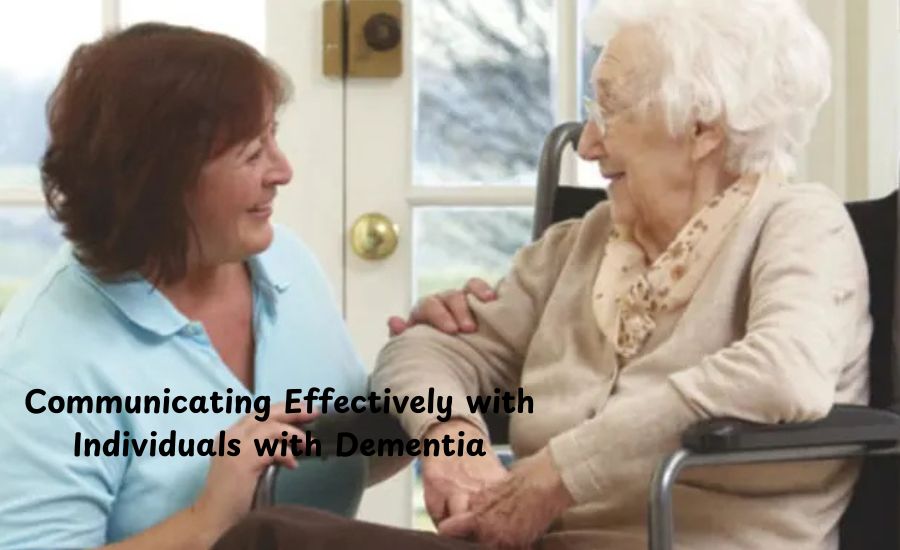Communicating Effectively with Individuals with Dementia
Dementia is an umbrella term used to encompass a range of symptoms indicating a decline in cognitive abilities. It encompasses conditions like Alzheimer’s disease, vascular dementia, and frontotemporal dementia, affecting an individual’s memory, thinking, and social interaction abilities. According to the World Health Organization, more than 55 million people worldwide are living with dementia, and this figure is expected to rise sharply in the coming decades as life expectancy increases globally.
Understanding dementia is the first critical step toward effective communication with those affected. Realizing individuals’ challenges with dementia can help develop a compassionate approach to their care. Caregivers in memory care Louisville KY facilities find that understanding the nuances of dementia is essential for providing holistic and informed care.
Importance of Effective Communication
Effective communication is crucial in providing care for individuals with dementia. It aids in preserving a bond, lessening restlessness, and enhancing the general health of those with dementia. Effective communication techniques can ease anxiety, foster a sense of security, and make daily routines smoother. Establishing a connection through memory care can significantly enhance their quality of life.
The emotional well-being of individuals with dementia is closely tied to the quality of their interactions with others. When words fail, and memories falter, genuine communication bridges the gaps, offering reassurance and comfort. This is why caregivers and family members must employ strategies that make communication more meaningful and less frustrating.
Communication Strategies
Several strategies can make communication with individuals with dementia more meaningful and less frustrating. Here are a few effective tactics:
- Maintain eye contact: This helps make the person feel acknowledged and respected. Eye contact conveys that you are present and their words and feelings matter to you.
- Speak slowly and clearly: Articulating words carefully can aid comprehension. Slow down your speech and allow time for the individual to process what you are saying. This can make a significant difference in how well they follow the conversation.
- Use visual cues: Gestures and visual aids can complement verbal communication. Sometimes, words alone are not enough; combining them with visual stimuli can help convey the message more effectively.
Create a Calm Environment
A calm environment is crucial for effective communication with people who have dementia. Eliminating background noise and minimizing distractions can help them focus better on the conversation. Examples include switching off the television or radio, shutting the door to block out external sounds, and opting for a peaceful, well-lit environment, which can be very helpful. According to the Alzheimer’s Society, a peaceful atmosphere can significantly enhance communication and reduce confusion and distress.
Creating a calm environment also involves being mindful of your body language and tone of voice. Nonverbal cues such as a warm smile, gentle touch, and relaxed posture can provide security and comfort. Maintaining a calm attitude and staying in the present moment can also comfort those with dementia.
Use Simple Language
Simplicity is key. Using easy-to-understand words and keeping sentences short can make the conversation more comprehensible. Avoid complex phrases or long-winded explanations. Short, direct sentences enable the person to follow the conversation without feeling overwhelmed.
Repeat critical information and rephrase if necessary. If they do not understand something, try to say it differently rather than simply repeating the exact words. This approach can help make the conversation more accessible and less frustrating for the individual.
Be Patient and Compassionate
Patience is vital. Individuals with dementia may take longer to process information or ask the same questions repeatedly. Showing compassion and understanding can go a long way in easing their anxiety and making the interaction more pleasant.
Empathy involves more than understanding their struggles; it also means validating their feelings and experiences. Acknowledging their emotions, whether fear, confusion, or frustration, and responding with kindness and patience can significantly improve their emotional state.
Seek Support
It’s essential to go with others. Numerous resources are available to assist caregivers and family members in managing the complexities of dementia care. Organizations like the Alzheimer’s Association provide educational materials and support groups to aid the journey. Seeking professional support can offer practical tips and emotional relief, ensuring better care for individuals with dementia.
Support groups allow individuals to exchange stories and gain insights from others going through comparable situations. These groups provide emotional support and valuable guidance, assisting caregivers in feeling less alone and more empowered.
Stay connected With: vistablogs





Post Comment